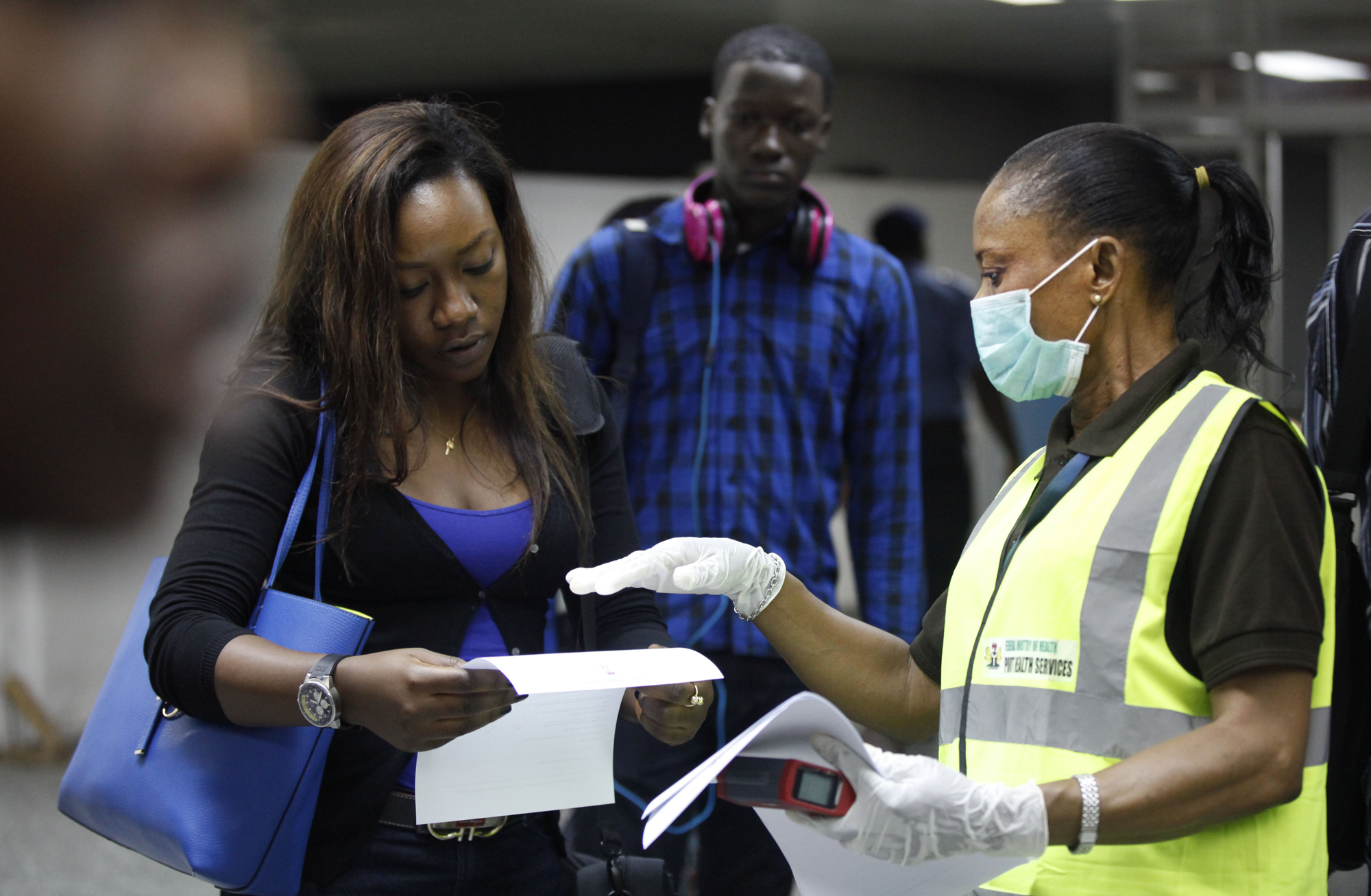
Until last week, many Nigerians largely ignored West Africa’s Ebola outbreak: It was several countries away and didn’t seem like an immediate threat. That changed after a Liberian-American named Patrick Sawyer boarded a plane in Liberia while ill with the disease, crossed four countries by air, landed in Lagos, and then collapsed at the airport.
Sawyer died in Lagos days later on July 25, but while being treated he infected at least six other people, including a nurse who died Aug. 5. Suddenly, the government has come under pressure to quickly raise awareness and prepare facilities for more potential cases—all while grappling with a strike by public sector doctors.
The stakes are high. Lagos is Nigeria’s commercial capital and biggest city with 21 million people, in Africa’s most populous country of more than 170 million people. An outbreak in Lagos could bring Africa’s crisis to a whole new level.
Lagos sate health commissioner Jide Idris said this week that doctors didn’t initially realize Sawyer was infected with Ebola, a virus with symptoms similar to other tropical diseases. The government is now screening travelers, obtaining isolation tents in case they receive new cases, and establishing an emergency operations center, while the other five patients with confirmed cases of Ebola are treated in isolation at a Lagos hospital.
But containing the deadly disease takes vigilance. The government’s main focus at the moment is screening incoming and outgoing passengers, treating already ill people in isolation and monitoring people with whom they’ve come in contact. As soon as people who were exposed develop symptoms, they are put in quarantine and tested for Ebola. Health experts say people infected with the virus only become contagious after they develop symptoms, and the virus has an incubation period of up to three weeks.
The government was following a total of 70 people who had primary contact with Sawyer, but the number of people being monitored is growing as the government tracks more people who were in contact with the six infected patients before they showed symptoms.
“It is possible in the first day, probably the second day, in the course of doing this, a lot of those health workers got infected,” Idris told reporters in Lagos. The doctors isolated him “immediately when they realized that ‘Oh this man came from Liberia.’ … That’s when they alerted us.” All of the people infected in Lagos had direct contact with Sawyer.
But more help is needed to contain the disease in Nigeria.
“We need volunteers now, extremely necessary, urgently needed, to assist us in tracking the contacts,” Idris said. “And more importantly to manage those cases that are already in isolation in order to give them a chance for life they need to be properly managed, so we need doctors, we need nurses, environmental health workers.”
Still, the outbreak hasn’t affected daily life in the economic hub of Africa’s largest economy. Even as some concerns mount among government officials, many people say they’re not worried.
“I don’t believe it, I don’t believe what people are saying that is happening in Nigeria,” said 28-year-old Christopher Ukpang, a security guard at an upscale Lagos supermarket. “I’m begging my fellow Nigerians, they should not be afraid of this sickness, it won’t affect us. We should have trust in God.”
Interest spiked after health authorities announced the first confirmed case of Ebola infection of a Nigerian on Aug. 4—and the local media coverage exploded.
“I’m worried about it,” said one Nigerian woman. “In my office they sent out an updated mail to everybody to be very careful and to wash your hand regularly and use the sanitizer.”
Eunice Ojodu, a 50-year-old fruit seller in the city, said she had heard about the disease in awareness messages the government is broadcasting on TV and radio.
“It’s killing people but I haven’t seen it,” she said. “I haven’t seen it and I don’t pray to see it.”
More Must-Reads from TIME
- Where Trump 2.0 Will Differ From 1.0
- How Elon Musk Became a Kingmaker
- The Power—And Limits—of Peer Support
- The 100 Must-Read Books of 2024
- Column: If Optimism Feels Ridiculous Now, Try Hope
- The Future of Climate Action Is Trade Policy
- FX’s Say Nothing Is the Must-Watch Political Thriller of 2024
- Merle Bombardieri Is Helping People Make the Baby Decision
Contact us at letters@time.com